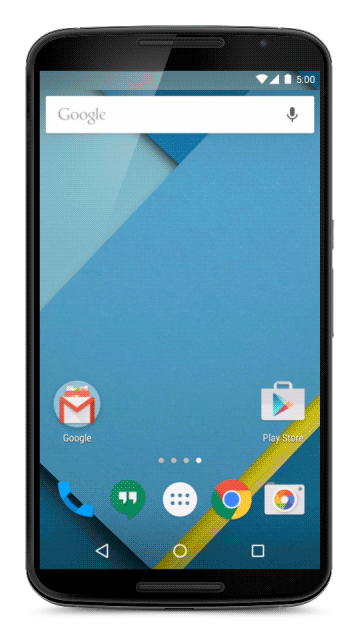Google Is Redefining Healthcare, Literally
February 12, 2015
Some people believe Google is trying to redefine healthcare. In more than one respect, they would be right.
Nancy Crotti
|
Google animation showing its new health-disease tracking functionality. |
Google plans to update the definitions of the 400 most frequently sought health-related terms on its search engine, enlisting the help of the Mayo Clinic to help it do so. The new definitions will go live on Tuesday, February 17.
An information box will include details about each entry, such as how common it is and how it is treated. Like those found in a good old-fashioned dictionary, some definitions will come with drawings by medical illustrators.
For example, the definition of rabies will have an illustration of a raccoon next to the drawing of an arm with a bite and the comment, "very rare," according to a statement by Google. The Mountain View, CA-based company brought physicians from the renowned Mayo Clinic (Rochester, MN) on board to fact-check the definitions.
One in 20 Google searches are for health-related information, Google product manager Prem Ramaswami wrote in a blog post this week.
"We'll show you typical symptoms and treatments, as well as details on how common the condition is--whether it's critical, if it's contagious, what ages it affects, and more," Ramaswami wrote. "Once you get this basic info from Google, you should find it easier to do more research on other sites around the web, or know what questions to ask your doctor."
After Tuesday's rollout, Google plans to add more definitions in English and other languages.
"Good information is good medicine," said Dr. Phil Hagen, medical director for healthy living at Mayo Clinic Global Business Solutions, in a statement.
"We took a special interest in Google's technology for providing quick, reliable, useful information."
Both Google and Mayo were careful to say that the new Google definitions should not be considered medical advice. Nevertheless, Hagen allowed that those who want more information might consult mayoclinic.org next.
Google's cofounders have downplayed that they're interested in turning the tech giant into a healthcare company.Their actions, however, belie their words.
Just in the past six months, the company has acquired a technology for Parkinson's patients.
One month later, the tech giant announced a project to develop nanoparticles that would be coated with a disease-detecting substance and possibly packed into a pill. Google said it is also working on a wearable device that would magnetically attract and count the particles.
The firm also has a division known as Calico, which as Bill Gates recently put it, is trying to help rich people live forever.
Perhaps more practically, its Google Glass could be suited for a range of potential medical applications--although the product was recently withdrawn from the market for a tune-up.
In addition, the company's Google(x) Life Sciences division is working with Biogen Idec., Inc., which makes drugs to treat multiple sclerosis, to study outside factors that affect MS patients over time.
Google(x) the secretive long-term research arm of Google, broke into medical device wearables for chronic diseases in January 2014 when it announced it was developing glucose-reading contact lenses for diabetics.
As MD&M West draws to a close on February 12, check back on our blog for more show-related coverage. |
Nancy Crotti is a contributor to Qmed and MPMN.
Like what you're reading? Subscribe to our daily e-newsletter.
About the Author(s)
You May Also Like



